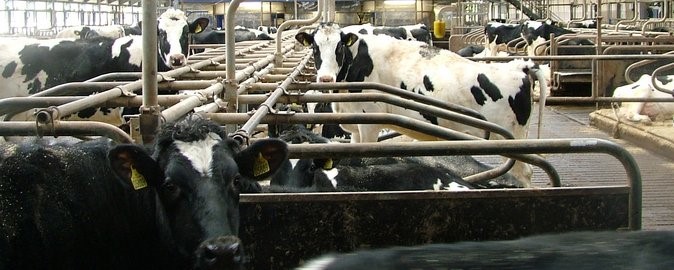Project aims to reduce cow’s methane emissions via feeding and to investigate biological reasons for why cows differ in methane production.
February 6, 2020

Aarhus University in Denmark announced a new research project that aims to contribute to reducing the carbon footprint of dairy production.
Preliminary studies from Aarhus have shown that cows’ methane emission is significantly affected via feeding, the announcement said. Therefore, the new project, led by the Aarhus department of animal science, is based on a number of essential focus areas, including feeding, rumen metabolism, phenotypes, measuring and assessment methods and assessments of effects.
Part of the project will study the effect of existing feed additives and, in cooperation with the industry, will start developing new additives that, in time, can ensure a significant reduction in cows’ methane production without affecting cattle health and milk quality, Aarhus said.
Furthermore, the researchers must identify dairy cows with low and high losses of methane, respectively.
“It is well known that the production of methane varies markedly among the animals. However, it is not yet stated which of the physical, physiological and microbial qualities distinguish the climate-efficient dairy cow from the less-efficient dairy cow,” said project leader Peter Lund with the Aarhus department of animal science.
Thus, the aim is to define the phenotypic qualities (i.e., the qualities expressed via appearance and physiology) characterizing the efficient dairy cow, Aarhus said.
Implementation and documentation
The spread of new mechanisms -- for example, the use of additives -- is completely dependent on the opportunity to implement them in each farm, Aarhus noted. Therefore, this project must identify the barriers for using these mechanisms and present potential solutions.
Successful implementation potentially will reduce the methane emission from the cow’s digestive processes by 30-40% in the short term (2030), the university said.
Finally, during the project, the researchers will develop new tools for documenting the effect of the new initiatives on the reduction of methane emitted from the cow's rumen at the product, farm and national levels as well as for identifying related effects elsewhere along the food chain.
The project, supported by the climate fund of The Ministry of Environment & Food of Denmark, will run from 2019 to 2022. It is led by the Aarhus department of animal science and is carried out in cooperation with the University of Copenhagen, SEGES, DSM, Arla and Novozymes.
You May Also Like


.png?width=300&auto=webp&quality=80&disable=upscale)
